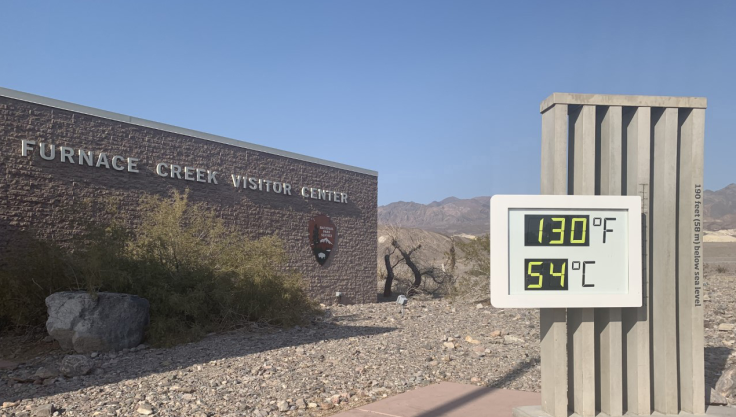
Either way, the heatwaves are starting to hit everyone across the country but no place worse than at Death Valley National Park, where the temperatures are expected to reach 130 degrees Fahrenheit between July 8-9. If it does, it will set the record for the hottest temperature ever "reliably measured on Earth" according to Scientific American.
Known as the hottest place on Earth, Death Valley currently holds the record thanks to its desert climate and has previously experienced temperatures of 130 degrees Fahrenheit back in August 2020 and again in July 2021.
Chris Outler, a forecaster with the weather service's Las Vegas office said that there is a 20% chance the park will hit the 130-degree mark next week.
But what is happening at the park is also happening all across the Southwest United States. Records could also be set in Las Vegas, Phoenix and parts of Southern California. The City of Phoenix, in Arizona, has seen 14 days in a row with high temperatures at around the 110-degree mark.
Such high temperatures become a risk particularly for young children, the elderly, those who work outdoors and people with existing health issues. Heat is the number one weather killer in the United States, according to data from the Environmental Protection Agency. Each year, approximately 1,300 people in the U.S. die from exposure to extreme heat and that figure is just expected to increase thanks to the accelerating effects of climate change.
The recent heatwaves are proof that climate change is hitting us faster than we all thought. Between 1880 and 1980, average temperatures worldwide rose by about 0.13 degree F every 10 years. But since 1981, that rate has more than doubled, and for the past 40 years, global annual temperatures have increased by 0.32 degree F per decade.
That dramatic shift has intensified in the last decade. The 10 hottest years on record have all occurred since 2010 and, as global warming continues to intensify, more frequent, longer-lasting and more intense heat waves are expected to hit people all over the world. According to the NOAA, this past June was the hottest on record globally and the planet likely had its hottest week in human history in the first week of July, according to the World Meteorological Organization.
© 2024 Latin Times. All rights reserved. Do not reproduce without permission.







